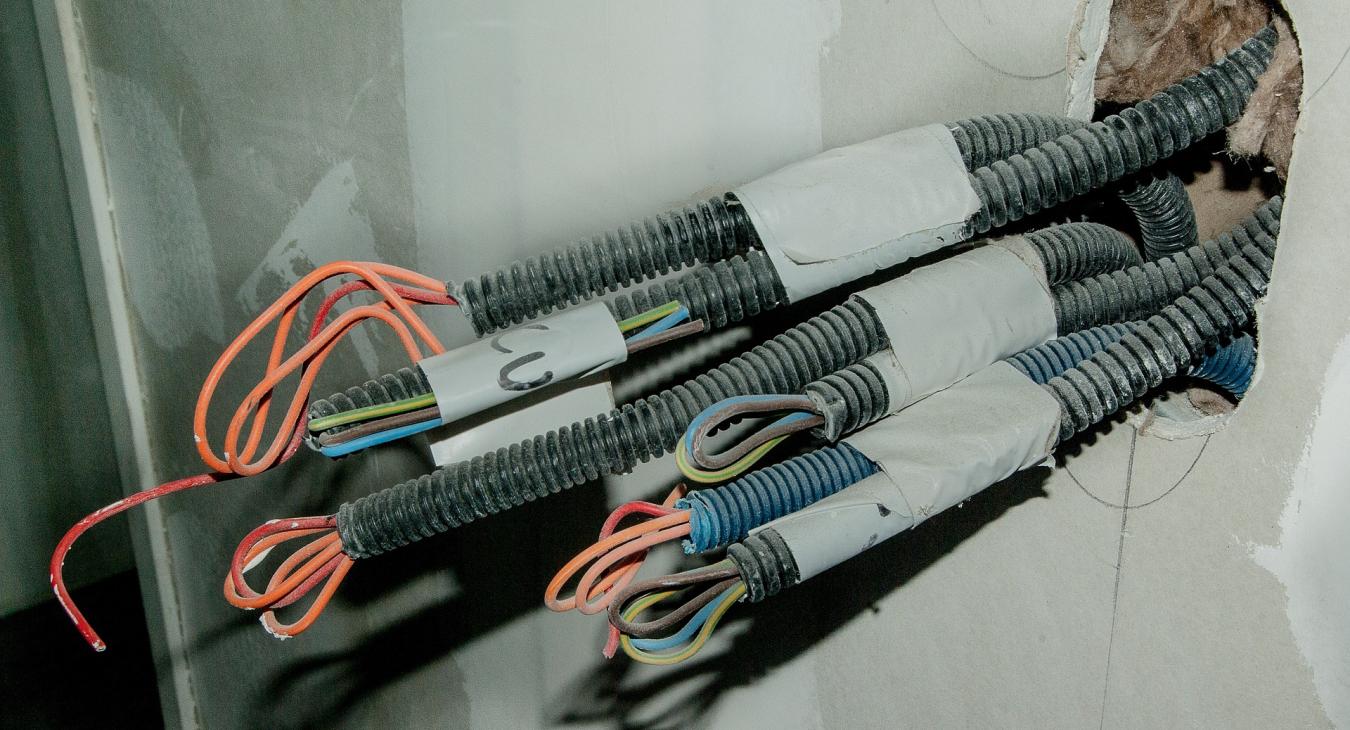Friendly and efficient service from Olly, emergency call out as sockets not working, every socket checked individuall

We are currently carrying out a large rewire in Colyton, so I thought that I would explain why a property may need rewiring.
As a house gets older, the electrical wiring can become outdated or even dangerous. This is why house rewiring is often necessary to ensure the safety of the home's occupants and to bring the electrical system up to modern standards. Rewiring a house is a significant project, but it can also be essential for maintaining a safe and functional living space.
What is House Rewiring?
House rewiring refers to the process of replacing all or some of the electrical wiring within your home. This typically involves replacing the existing wiring with new wiring that meets current safety standards, building and wiring regulations. In addition to replacing the wiring itself, a house rewiring project will also involve updating other electrical components, such as sockets, switches, and consumer units (also known as fuse boxes).
Why would you rewire a House?
There are several reasons why you might consider rewiring your house:
- Safety: Old or faulty electrical wiring can be dangerous, increasing the risk of electrical fires or electric shock.
- Reliability: Outdated wiring can lead to power issues or electrical equipment failure.
- Capacity: Older electrical systems may not be able to handle the power demands of modern appliances and electronics, many properties we visit in Colyton do not have enough sockets for modern living and have a lot of extension leads and adaptors around the property.
- Compliance: If you're planning on selling your home, you may need to ensure that the electrical installation complies with the current wiring regulation (BS7671). If you are thinking of renting your property then this will need to comply with current wiring regulations, and the installation will need to be of a ’satisfactory’ standard.
How is House Rewiring Done?
House rewiring requires the expertise of a qualified and registered electrical contractor/ electrician. The process can be broken down into several steps:
- Assessment: The first step in any house rewiring project is to assess the existing electrical system to identify any issues or areas that need improvement. This will more than likely involve a ‘electrical installation condition report’ (EICR), please see our other blog explaining what is involved in this work.
- Planning: Based on the assessment, we will create a plan for rewiring the house, taking into account factors such as the layout of the home, the number of rooms, and the electrical requirements of the occupants, along with if the property will remain occupied while the work is carried out.
- Installation: We will install the new wiring, sockets, switches, and consumer units. This may involve running wires through walls and ceilings, drilling holes, and chasing. This can be a messy job but we have a dust extraction system that we use to not only protect your home but to protect our operatives.
- Testing: After the installation is complete, we will test the new electrical system to ensure that it's safe and functional.
- Certification: Once the testing is complete, we issue a certificate confirming that the electrical system meets current building regulations and safety standards, we will also register the work with the local building control to ensure building regs compliance (BRCS) which provides a 6 year insurance backed warranty.
How Much Does House Rewiring Cost?
The cost of rewiring a house in the UK can vary widely depending on factors such as the size of the home, the complexity of the electrical system, and the location. On average, you can expect to pay between £2,500 and £5,000 for a typical three-bedroom house. However, the cost can be higher depending on the specification of your project.
In conclusion, house rewiring is a significant project that can improve the safety, reliability, and functionality of your home's electrical installation. While it can be a costly and time-consuming process, it's essential for ensuring that your home meets current building regulations and safety standards. If you're considering rewiring your house in Colyton, be sure to call Tyne Electrical Services. We are your local electrician who can assess your home's electrical installation and provide you with an accurate quote for the project.









